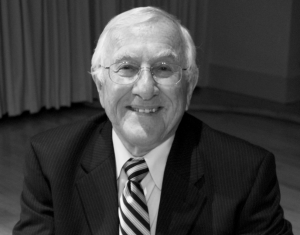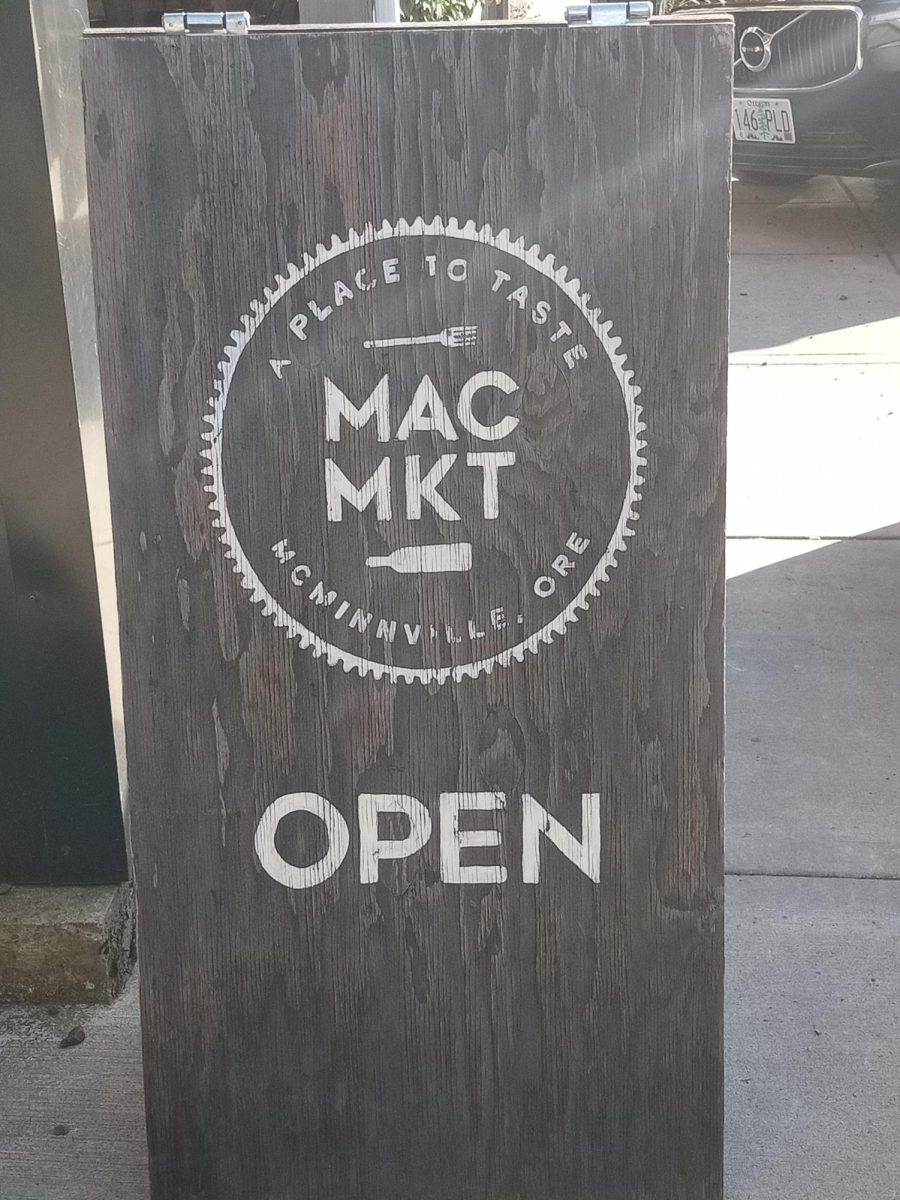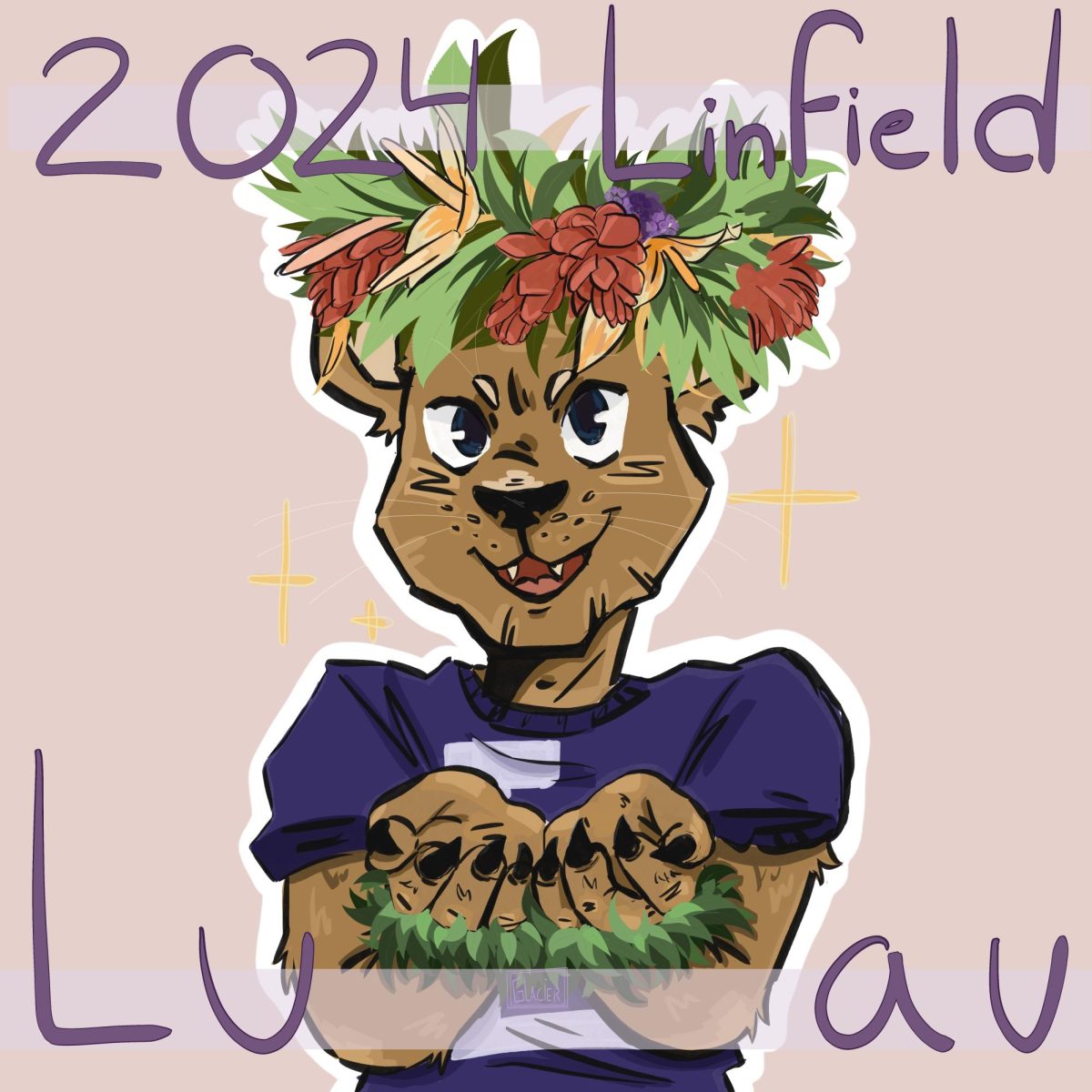
Guest speaker Frederick Tubach shares with Linfield and McMinnville community members a story of friendship, showing how people can grow and overcome hardships during his lecture “The Legacy of War: Story as Bridge, Liberation and Transformation” on March 12.
Connecting the personal stories from people affected by war is one of the ways guest speaker Frederick Tubach believes that we can grow as a civilization and overcome extreme hardships.“Bernie and I were just two individuals, who happened to come from different sides of the Holocaust,” Tubach said when he visited Linfield on March 12.
Tubach and “Bernie,” Bernat Rosner, wrote the book “An Uncommon Friendship: From Opposite Sides of the Holocaust” about their childhoods during the Nazi occupation.
Tubach was born in California in 1930 to German parents, and after the death of his mother, his family moved back to Germany where he spent his childhood in the midst of World War II. Rosner is a Hungarian Jew who grew up at the same time as Tubach, but under different circumstances.
“As he recited his story to me, he sounded like a lawyer,” recalls Tubach of Rosner’s detachment from his past. Rosner was sent to Auschwitz Concentration Camp at the height of Hitler’s Holocaust, a genocide in which he lost his entire family.
“Bernie said that religious thoughts did not help,” Tubach said of his friend’s process of dealing with the memories of one of the most notorious Nazi death camps. “He did reconnect on some level, but he was never a firm believer again.”
After returning to Germany, Tubach’s father joined the Nazi Party and fought for the Germans during the war, while Tubach stayed home with his stepmother and her family.
“The Nazi’s attempted to obliterate the value of the individual life for what they believed was the higher good,” Tubach said.
As a member of the Nazi Youth Camp during his childhood, Tubach remembers his childhood as a time of confusion and contradiction under the Nazi regime. Years later, when he discovered the truth of what happened during those years, he found it “incomprehensible.”
“This was not the war I experienced as a child and teenager, but I came to understand it as an adult,” Tubach said. “A genocide had happened in the middle of Europe, but I did not realize it until the Americans arrived. They put up a poster of the Warsaw Ghetto to show us ‘what we Germans had done.’”
To reconcile his childhood memories with the war he learned about as an adult, Tubach believes that there are two ways to experience any conflict.
“There is a war of personal experience and there is war as a grand design,” Tubach said. “I saw war through the eyes of women— mothers for sons, wives for husbands, sisters for brothers.”
After returning to America and renouncing his German citizenship, Tubach attended the University of California at Berkeley and later became a professor. Attempting to put the past behind him, it was not until his wife ran into an old friend and decided to have her and her Hungarian-born husband over for dinner.
“It is such an American story,” Tubach joked of his chance meeting with Rosner. The two began a friendship based on sharing their stories from their time in Europe.
“World War II was two generations behind us. However, the past still weighed so heavily on our minds.”
Thirteen years into their friendship, the two decided to write a book about their pasts.
“The story offers no solution, but the hope that one day more bridge stories will emerge in conflicts like Israel and Palestine, the Sunni and the Shiite, India and Pakistan,” Tubach said of his book.
Tubach’s visit is part of the PLACE: Legacies of War lecture series at Linfield, which will host a number of events this semester.
Olivia Marovich/Staff writer
Olivia Marovich can be reached at [email protected].






